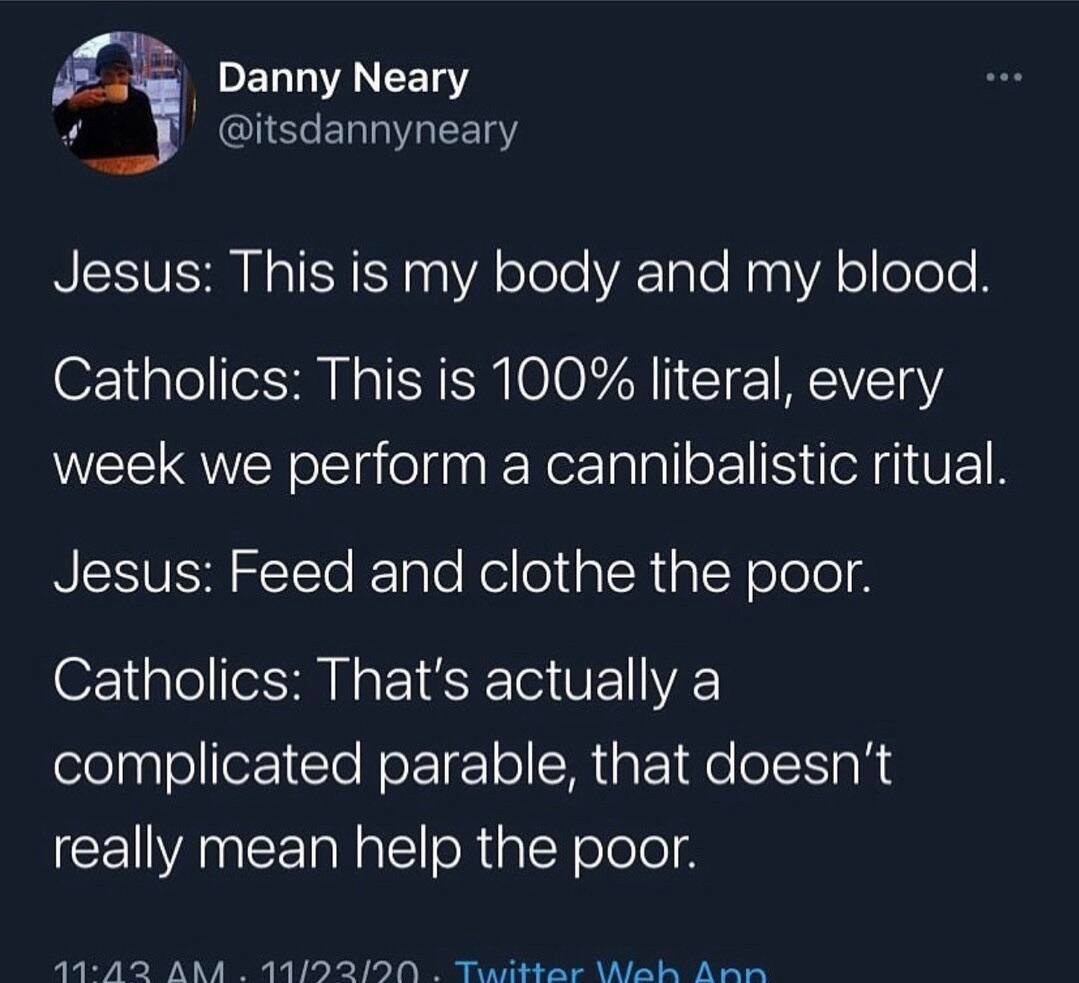this post was submitted on 04 Jul 2023
1161 points (99.9% liked)
196
16423 readers
2673 users here now
Be sure to follow the rule before you head out.
Rule: You must post before you leave.
founded 1 year ago
MODERATORS
you are viewing a single comment's thread
view the rest of the comments
view the rest of the comments

Synoptics were written decades after the authentic letters of Paul, so it's quite more complicated than what you imply. But yeah, there were debates about this subject in early Christianity.
Sort of.
The Synoptics as we have them today are from at least around 15-20 years after Paul's letters.
But particularly for Mark the picture is - as you said - a fair bit more complicated.
Not only is there the case for a proto-Mark, which complicates the post-70 CE dating given the key feature that depends on (the description of the fall of the temple) occurs in what's termed a Markan sandwich or didactic scene (basically where Jesus is expanding on something he just said publicly in a private conversation with only a handful). Was this a part of the original Mark, or was that scene a later interpolation bringing what was a statement about eventual impermanence of manmade things (Mark 13:1-2) in line with events that had then transpired?
Further complicating this picture is the relationship between Mark and Paul. While the simple assumption is that the author of Mark was familiar with Paul's letters (the case in Dykstra's Mark, Canonizer of Paul), considering this in light of a possible proto-Mark raises questions around certain curious language in Paul's letters.
For example, note 1 Cor 9:19
Compare to Mark 10:43-44
One possibility here is that the author of Mark is seeking to place Paul in first place in the "who gets to sit next to Jesus" competition. But the specific language Paul uses of "in order to gain all the more" seems almost like he's actively employing the phrase knowing full well the implications.
This, in combination with his using the exact same forms of the Greek words for seed and sown seeds in 1 Cor 15:37-38 as the mustard seed parable in the Synoptics (itself related to the concept of bodily makeup by one of the sects declared heretical with overlapping concepts and sayings to elsewhere in Paul's Corinthian letters) has me inclined to think Paul had access to written sayings of Jesus at least some of which overlap with Mark.
So while I did go into the later composition and continued editing of the gospels in the comment above, the question of composition is an extremely murky one and the late first dating around the gospels commonly thrown around is pretty much hogwash when you dive more deeply into it outside of perhaps Matthew which seems the least to have suffered layers of redaction. Most of that composition is certainly after Paul, but perhaps not all of it.
How do I learn more about this ?
Unfortunately my best recommendation is reddit.com/r/AcademicBiblical - though I'm hoping to eventually pull that community over to Lemmy.
It's a pretty neat place where you have a range of bright minds from various degrees of experience discussing a lot of topics like this.
In terms of the topic of proto-Mark you can see Burkett's book on the subject.
And then for the relationship between Paul and the gospel of Mark there's the aforementioned book.
But one of the challenges with the book route is that you typically get a lot of a single perspective, whereas in communities debating the books you can quickly get to some of the interesting overlaps or differences between perspectives.
That sub is probably the only thing I really miss from Reddit.
Excellent, I was actually looking for a community like this earlier today after reading some of your comments. Hoping that the Lemmy equivalent does build up traction eventually!
don't miss it, hypocrisy and consistency are spooks, enjoy both sides 😎